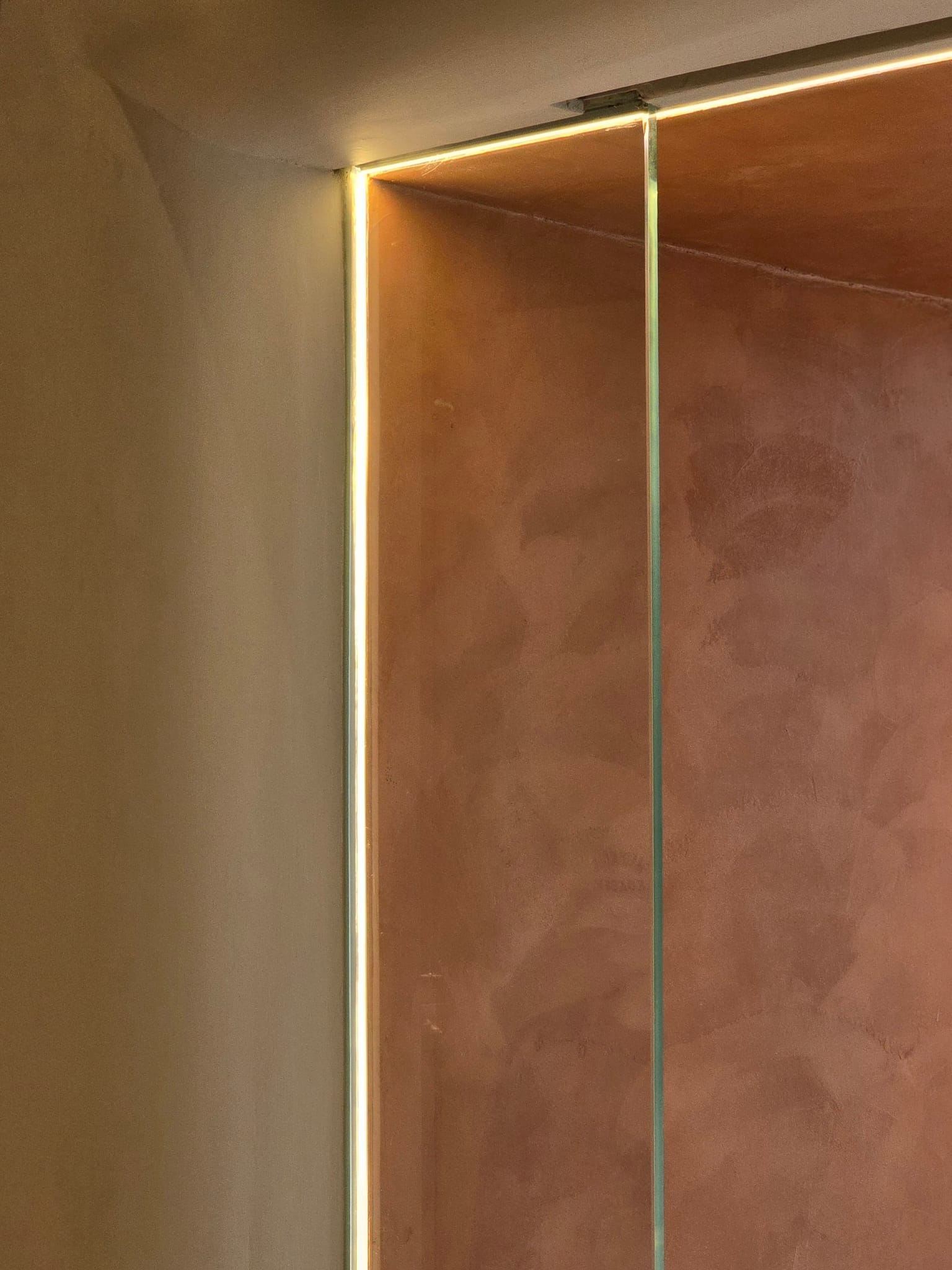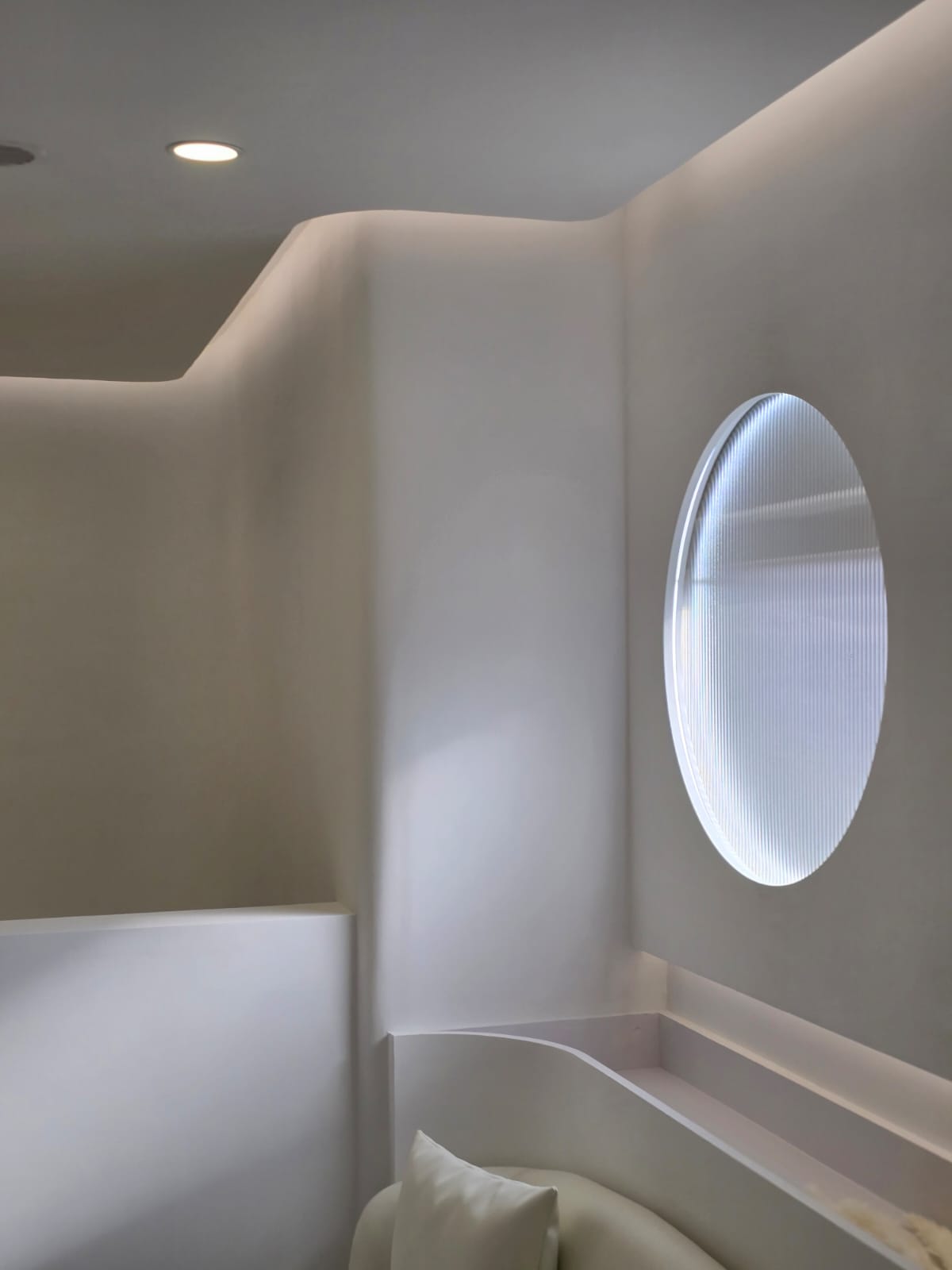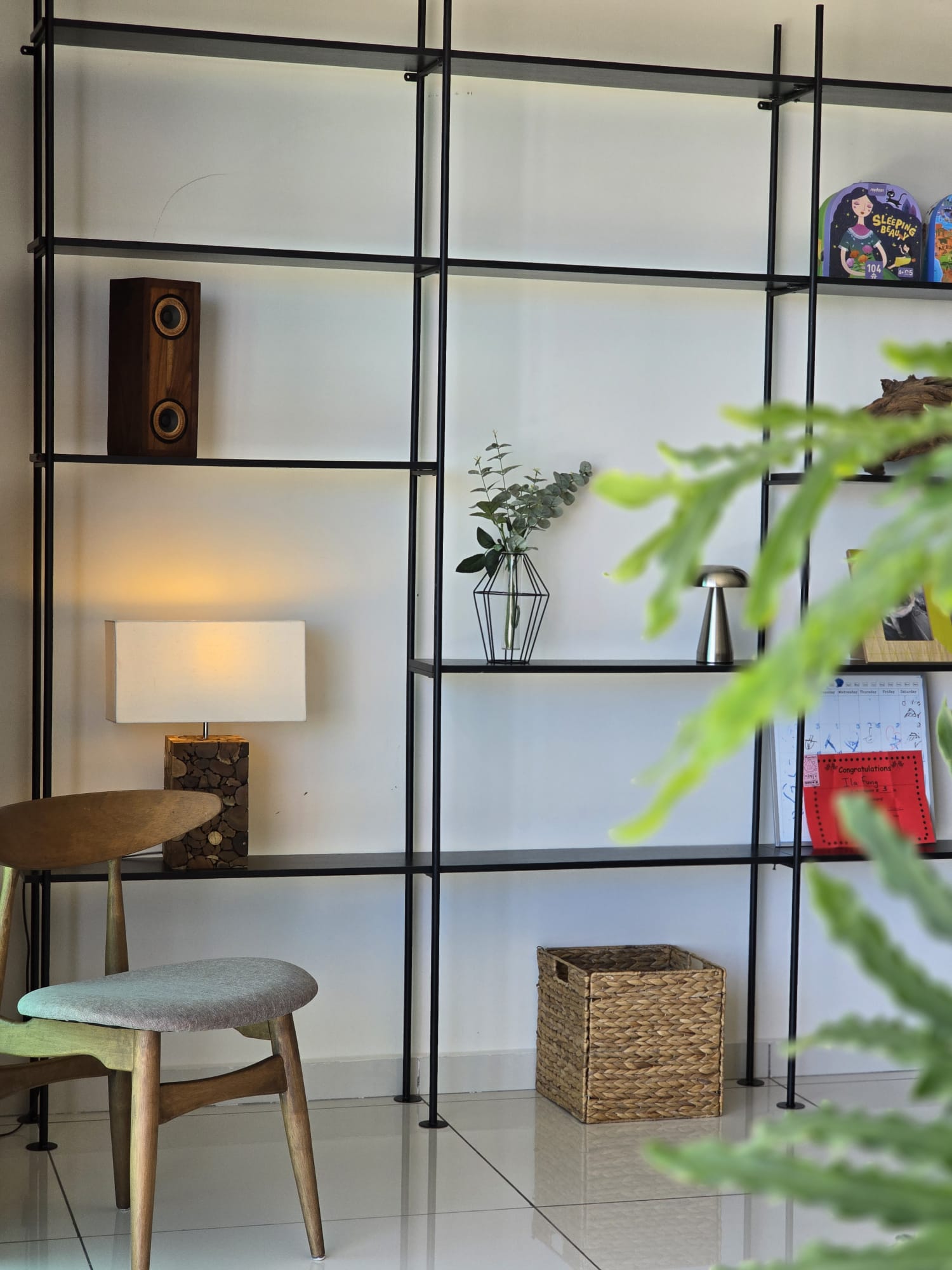
What is microcement? 6 major advantages make it a new favorite decoration material]
Share
In recent years, with the advancement of decoration technology and consumers' dual pursuit of aesthetics and functionality, microcement has gradually become a popular material in the interior design industry. Whether it is residential, commercial space or public places, microcement is used more and more widely. Its unique texture, minimalist style and excellent performance make it a new favorite of designers and owners. It can stand out among many decoration materials. Of course, both the external and internal aspects should be given equal importance. Simply put, microcement is a functional decoration material. Whether the interior design style is cream style or wabi-sabi style, microcement can be used to create it, highlighting the seamless harmony and touch.

Six advantages of microcement
The following will introduce Fufini, the cooperative brand of Design House HK microcement:
1. Waterproof and moisture-proof: creating a seamless perfect barrier
After long-term use, traditional cement or tile floors are prone to cracking, water seepage, or mold due to the humid environment, especially in high humidity areas such as bathrooms and kitchens. Due to its seamless characteristics, microcement can form a continuous and dense protective film, effectively preventing water penetration and improving the waterproof and moisture-proof performance.
Waterproofing performance of microcement - Test video
The main components of microcement include cement, resin and minerals. After special processing, its waterproof performance is better than ordinary cement and tiles. Even for bathroom floors or walls that are in contact with water for a long time, microcement can remain stable and will not deform or breed mold due to moisture.
Seamless design to prevent leakage
Traditional tiles need to be laid with gaps between them, but the caulking agent tends to turn black and fall off after long-term use, affecting the appearance and causing water seepage problems. Microcement is coated as a whole without the need for joints, which fundamentally solves the problem of water seepage and is particularly suitable for modern minimalist bathroom spaces.


2. High hardness and crack resistance: strong and durable, long-lasting
Many people mistakenly believe that microcement is prone to cracking due to its thin layer design (only 1-3mm), but in fact, high-quality microcement has extremely high compression and crack resistance and is even stronger than traditional cement.
High compressive strength
Microcement has a compressive strength of up to 20MPA (about 203kg / 447 pounds), which is far higher than ordinary cement. It can withstand high-intensity use in daily homes and commercial spaces, such as furniture moving, heavy object impact, etc., and is not prone to cracking.
Microcement scratch resistance and compression test - click here
Elastic resin for enhanced toughness
The polymer resin component added to microcement gives it a certain elasticity, which enables it to adapt to slight settlement or vibration of the building and avoid cracking due to structural deformation. It is particularly suitable for the renovation of old buildings.
3. Anti-oil and anti-color
The surface of microcement is dense and smooth, and it is not easy for oil stains, beverages and other liquids to penetrate. It can be restored to cleanliness by simply wiping it with a damp cloth. It is especially suitable for easily dirty areas such as kitchens and restaurants.
Anti-fouling and resistant to scrubbing: easy to clean and maintain, long-lasting and as good as new
Traditional cement floors easily absorb stains and are difficult to clean, but the surface of microcement has been sealed and has strong stain resistance. Daily maintenance is extremely convenient, and generally only a clean rag with water is enough.

4. No need to demolish the old toilet: low-cost renovation, saving time and effort
Traditional bathroom renovation requires removing the original tiles, which is not only a huge project but also generates a lot of construction waste. The direct covering properties of microcement make it the first choice for renovation of old houses.
Can be directly applied on old tiles and cement surfaces
Microcement can perfectly adhere to existing tiles, cement or marble surfaces without the need to demolish the original structure, greatly reducing renovation costs and time.
Suitable for various substrates
Whether it is the wall, floor, staircase, or the surface of the bathtub or wash basin, microcement can cover it seamlessly, giving the space a new visual effect. It is especially suitable for modern design styles such as minimalism, industrial style, and wabi-sabi style.


5. Environmental protection and safety: zero formaldehyde, worry-free health
Modern people pay more and more attention to the health and environmental protection of their home environment. Microcement has become one of the representative materials for green decoration because of its non-toxic and formaldehyde-free properties.
Low VOC emissions, in line with environmental protection standards. The main components of microcement are inorganic mineral materials, which do not contain harmful substances such as formaldehyde and benzene. There is almost no odor during the construction process, and you can move in immediately after decoration. It is suitable for homes, hospitals, schools and other places with high requirements for air quality.
Microcement brand Fufini has obtained French A+ environmental certification

6. Ultra-thin thickness (no more than 3mm): space-saving, lightweight design
The thickness of traditional cement mortar layer is usually 5-10cm, while microcement only needs 1-3mm to complete the construction, which is particularly suitable for small apartments or spaces with limited floor height.
Does not take up space and increases indoor height
For low-rise apartments or old buildings, the ultra-thin nature of microcement can avoid compressing the interior height due to raising the ground, making the space appear more spacious.
Applicable to curved surfaces and special-shaped structures
Due to the fluidity and ultra-thin coating of microcement, it can perfectly fit special structures such as curved walls and columns, achieving design effects that are difficult to achieve with traditional materials.

Whether it is residential renovation, commercial space design, or special styling needs, microcement can provide solutions that are both aesthetic and functional. With the continuous advancement of technology, the application scope of microcement will become wider and it is bound to become the mainstream choice in the future decoration market. For consumers who pursue minimalist style, durability and environmental protection, microcement is undoubtedly one of the most ideal decorative materials. The emergence of microcement has not only changed the cumbersome process of traditional decoration, but also brought unlimited possibilities to modern space design. If you are interested in microcement engineering and interior design services, please contact our customer service representatives and make an appointment for an interview with an interior designer.






